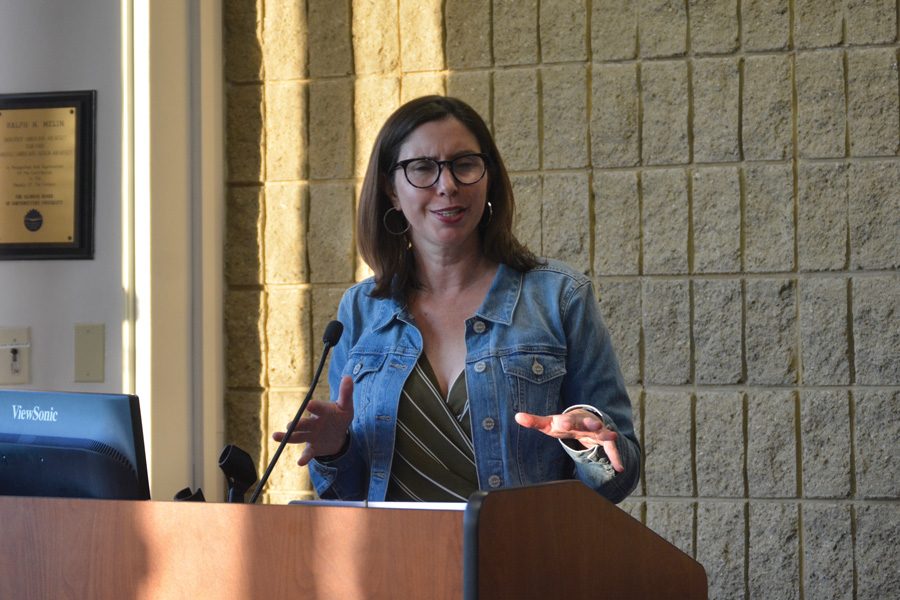ASG passes emergency legislation to crack down on COVID-19 policy shortcomings
Alison Albelda / Daily Senior Staffer
Interim Dean of Students Mona Dugo. Dugo said the University is doing everything it can to keep the community safe.
February 4, 2021
Associated Student Government passed emergency legislation Wednesday to better enforce Northwestern’s COVID-19 guidelines, despite the University’s low positivity rate.
Interim Dean of Students Mona Dugo said the positivity rate shows that the guidelines have been a success, though there is always room for improvement.
“Though there might be isolated incidents happening, I think by and large, our students are adhering to the expectations, which we know because of the positivity rates,” she told The Daily. at the Wednesday meeting.
The legislation attempts to address concerns with COVID-19 policies and incidences of student misconduct with reporting, testing and dining. Political Union senator Felix Beilin, said he wrote it after encountering these shortcomings on campus over the past few weeks. Beilin said the legislation is meant to highlight policy limitations and loopholes.
The University’s positivity rate is currently 0.36 percent.
“The goal is to keep that positivity rate low, and not just celebrate when we see it in good shape right now,” Beilin said.
Before the vote took place, ASG members asked questions and made suggestions about COVID-19 guidelines to Dugo, Jeremy Schenk, the executive director of Norris University Center, and Carlos Gonzalez, the executive director of residential services.
Daniel Rodriguez, ASG’s executive officer of justice and inclusion, asked Dugo about the sanctioning process in regard to rumors of parties and other large gatherings on campus. Dugo said the University follows up on every report they receive, most of which come from other students. Though some reports have led to actual outcomes, Dugo said they have come across a lot of rumors as well.
Schenk brought up a rumor that first-year students are paying people to take their tests. Dugo said as of now they have no evidence to verify this claim.
In reference to this rumor, the legislation recommends testing protocols be revised to disallow unmonitored testing. Beilin told The Daily the recommendation was a preemptive measure.
The legislation offered several more recommendations, including stricter reservations for on-campus dining and easier violation reporting. Schenk said he supported these ideas, but technological solutions would be difficult, especially within a short time period. Beilin said his next steps are to continue to talk with administration, since the legislation’s outcome is not within ASG’s control.
“I really want to be a part of conversations with administration to figure out what the easiest solutions are that will accomplish the same goals,” Beilin said.
Email: emmarosenbaum2024@u.northwestern.edu
Twitter: @EmmaCRosenbaum
Related Stories:
— As Northwestern Dining halls reopen, students express concerns about COVID-19 safety protocols
— Phi Kappa Psi sanctioned, fined for holding on-campus party



